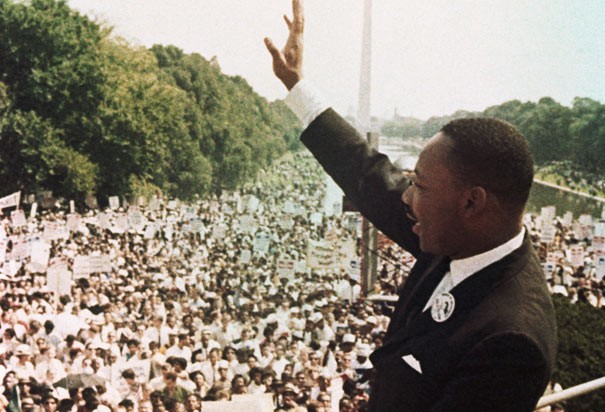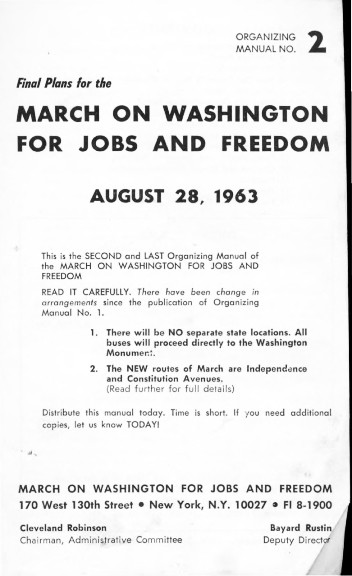The 50th anniversary of the March on Washington is August 28th. The publicity has already begun, but unless you are at least 60 years old you probably don’t remember the historic event and march that drew more than 200,000 people.
What was it about? Media accounts will focus, understandably, on Dr. Martin Luther King’s speech, the crowds, President John F. Kennedy who would be assassinated three months later, and the music of Peter Paul and Mary and Marian Anderson. But there is no better answer than the organizing manual for the “March on Washington for Jobs and Freedom” and its list of ten demands. Here they are:
1. Comprehensive and effective civil rights legislation from the present Congress — without compromise or filibuster — to guarantee all Americans access to all public accommodations, decent housing, adequate and integrated education, and the right to vote.
2. Withholding of federal funds from all programs in which discrimination exists.
3. Desegregation of all school districts in 1963.
4. Enforcement of the Fourteenth Amendment — reducing Congressional representation of states where citizens are disenfranchised.
5. A new executive order banning discrimination in all housing supported by federal funds.
6. Authority for the attorney general to institute injunctive suits when any constitutional right is violated.
7. A massive federal program to train and place all unemployed workers — Negro and white — on meaningful and dignified jobs at decent wages.
8. A national minimum wage act that will give all Americans a decent standard of living. (Government surveys show that anything less than $2 an hour fails to do this.)
9. A broadened Fair Labor Standards Act to include all areas of employment which are presently excluded.
10. A federal Fair Employment Practices Act barring discrimination by federal, state, and municipal governments, and by employers, contractors, employment agencies, and trade unions.
There was also this footnote: Support of the March does not necessarily indicate endorsement of every demand listed. Some organizations have not had an opportunity to take an official position on all of the demands advocated here.
The organizers were Cleveland Robinson and Bayard Rustin. King was one of ten chairmen along with Mathew Ahmann, Eugene Carson Blake, James Farmer, John Lewis, Rabbi Joachim Prinz, A. Philip Randolph, Walter Reuther, Roy Wilkins, and Whitney Young.
Buttons were a quarter.


